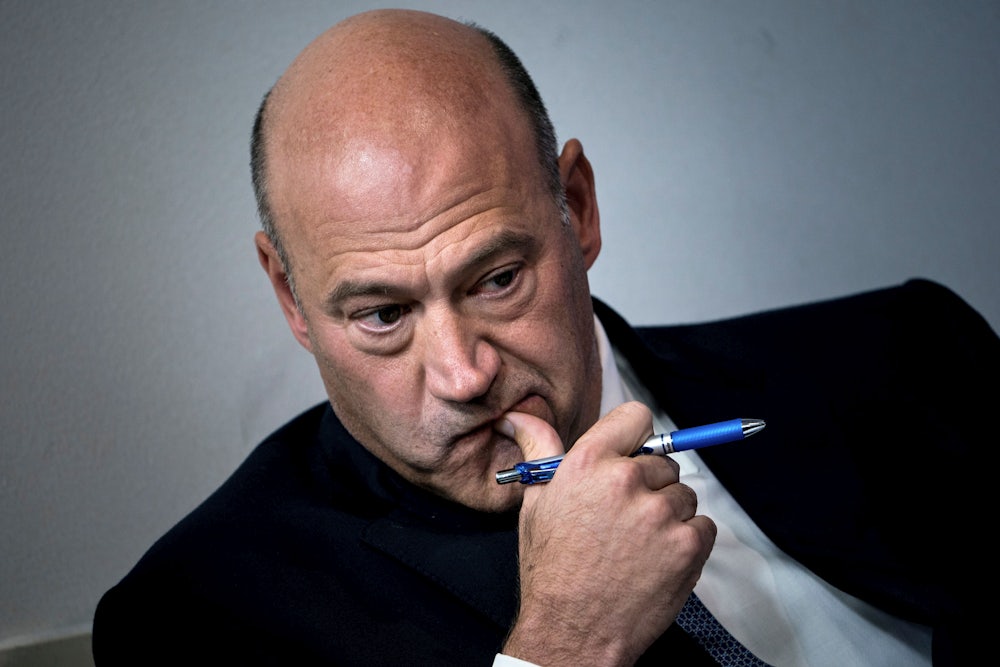Cohn, who announced he would be resigning as Trump’s top economic adviser on Tuesday, had weathered his share of storms during his 14 months in the White House. He was there when the White House unveiled (multiple) travel advisories banning visitors from predominantly Muslim countries from entering the United States. He was there when Trump fired James Comey. He nearly resigned—but ultimately didn’t—when the president said “both sides” were to blame for the violence in Charlottesville. And he was there for countless presidential blow-ups provoked by cable news. But ultimately, it was the imposition of minor and toothless tariffs on steel and aluminum that made him say, “Enough is enough.”
Tariffs are a silly line in the sand, but they’ve taken on serious symbolic importance in this White House. For the first year of Trump’s presidency, advisers like Cohn were able to cajole Trump into embracing a policy agenda that satisfied the Republican Party’s mega-rich donors, pushing a corporate tax cut to the finish line and largely staying out of trade. Much of the credit for this Eliza Doolittle-ish transformation went to Cohn, who was prized, particularly on Wall Street and in Silicon Valley, for his ability to bat down bad ideas swirling around the White House.
Republican free traders are freaking out about Trump’s tariffs because they are proof of something that Cohn has surely known for months, if not longer, which is that Donald Trump is not going to change his stripes. Cohn’s entire purpose was to get Trump to act contrary to his nature, and his resignation is a de facto acknowledgment that this is impossible.
